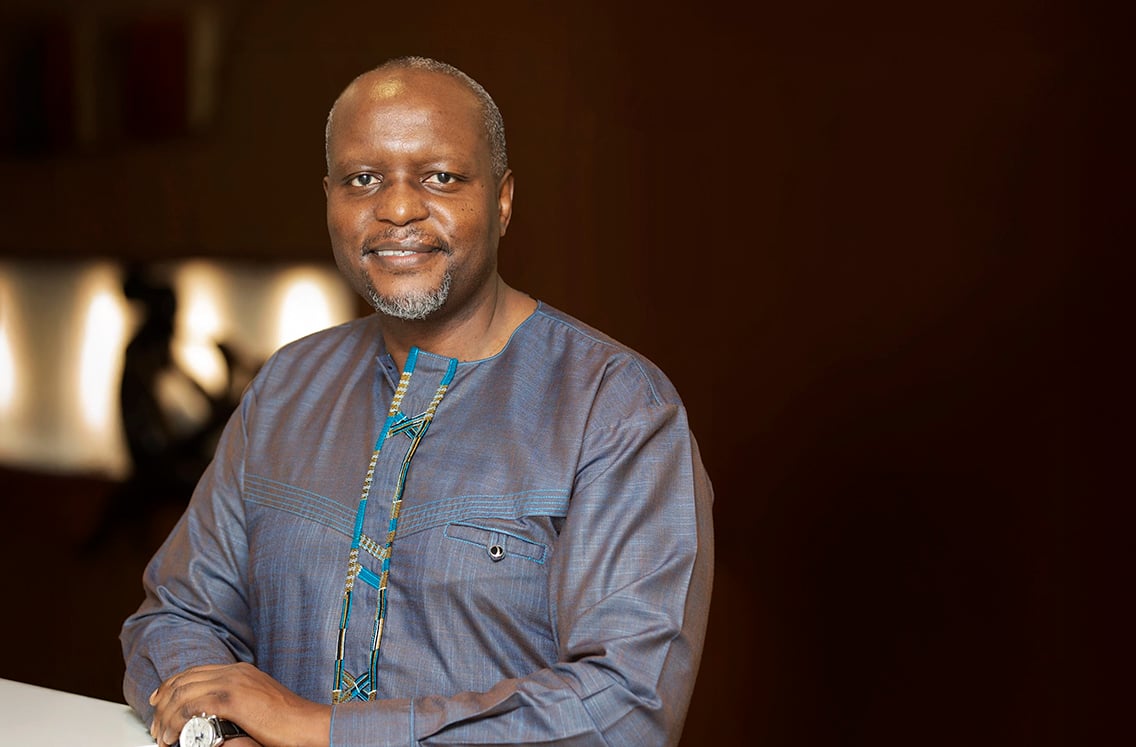This article was produced with the support of Standard Chartered Bank
From your perspective, how is the banking sector in Africa contributing to the continent’s economic growth?
By channelling capital into sectors crucial for job creation and economic growth, such as infrastructure, trade and small and medium enterprises (SMEs), Africa’s banking sector will impact trade finance and infrastructure investment, enabling robust supply chains and new markets. Structural reforms in emerging economies like Nigeria and Ghana have already attracted renewed investor interest and improved economic resilience, a trend Standard Chartered supports through targeted financing. This includes scaling local currency lending, in partnership with institutions like the IFC, to shield businesses from foreign exchange volatility; providing tailored credit lines for specific sectors and structuring risk mitigation instruments to attract co-investment from development finance institutions and private capital.
Standard Chartered has been in Africa for 170 years, with operations in 12 markets. We have mobilised billions for trade, infrastructure and SME growth, catalysing job creation and regional integration. This includes arranging a €280m social loan in Ghana to improve trade corridors and co-financing Tanzania’s $1.46bn Standard Gauge Railway project.
What role do you see banks playing in mobilising finance to bridge Africa’s infrastructure, healthcare and energy gaps?
The sector’s success hinges on unlocking more domestic capital – like pension and insurance funds – while attracting global investment to bridge Africa’s estimated $170bn annual infrastructure gap. Banks are key for mobilising the needed capital for this and related gaps like healthcare and energy. Standard Chartered provided over $4bn in infrastructure financing last year for complex, cross-sector projects.
Earlier this year, we signed a $50m standby liquidity facility with GuarantCo, strengthening its ability to de-risk projects and attract private investment. To date, GuarantCo has helped mobilise $5.7bn of private investment, bringing services to over 44m people across Africa and Asia.
How is Standard Chartered supporting Africa’s entrepreneurs, SMEs and corporates to scale and compete in regional and global markets?
By leveraging deep sector expertise and pan-African networks, we enable businesses on the continent to scale, compete and integrate with global markets. We support Africa’s entrepreneurs, SMEs and corporates by facilitating access to trade finance and offering capacity-building programmes: in partnership with the International Finance Corporation (IFC) and British International Investment (BII), we launched trade finance facilities totalling $170m to bolster access to capital for local enterprises across sub-Saharan Africa.
In South Africa, we are delivering exceptional network value, as the bank of choice in cash management for our Global Subsidiaries clients. We will continue to sharpen our focus on serving the cross-border needs of our large global corporate and financial institution clients who require financing, risk management and sector advisory expertise across Asia, Africa and the Middle East. This will include concentrating our efforts on serving the complex needs of fewer client groups where we have the most distinctive offering.
How is Standard Chartered leveraging technology to expand financial access and improve customer experience?
Leveraging advanced digital technology is crucial: Africa’s young and mobile-first population demands secure, affordable and seamless financial solutions – expanding inclusion and boosting customer experience in underserved countries. We have launched digital-only banks in eight African markets in the past 15 months, with products like SC Keyboard enabling real-time transactions via messaging platforms, improving speed and convenience.
Our digital solutions have reached more than 66m Africans with improved access to financial services. We are also piloting blockchain-based trade platforms to make cross-border transactions faster and more transparent.
With the African Continental Free Trade Area (AfCFTA) gaining momentum, how is the bank positioning itself to facilitate intra-African trade?
We are committed to harnessing AfCFTA momentum and channelling global capital into transformational African enterprises and projects. We have positioned ourselves as a facilitator of cross-border commerce by providing innovative trade finance, payments and advisory solutions tailored for integration across the continent.
To this end, we are actively supporting pilot corridors such as Ghana – Nigeria, including exploring partnerships with telecoms and fintechs to facilitate efficient cross-border settlements of low-value, high-volume transactions. Nigeria’s inclusion in this free trade area helps to facilitate trade in sectors ranging from fishery and textiles to automotives and electricals. Following this agreement, Nigerian exports to African markets outside of West Africa are expected to increase significantly and reach markets such as Botswana, Egypt and Kenya. The agreement has the potential to boost intra-African trade by 52%, increase Africa’s GDP by 3% and create 68m jobs by 2030.
We are digitising trade corridors to connect Africa with Asia and the Middle East, leveraging blockchain and partnerships with fintechs to enable low-cost, high-volume cross-border payments.
What opportunities do you see for banks to deliver sustainable finance and drive green growth and environmental, social, and governance (ESG) priorities in Africa?
Standard Chartered embeds ESG priorities in its operations through targeted green financing – like large-scale solar projects – and by supporting sustainable agriculture, healthcare and female-led SMEs. Banks are key to unlocking Africa’s transition to low-carbon, climate-resilient economies by mobilising sustainable finance for renewables, green infrastructure and inclusive development.
This aligns with a continent-wide pivot toward sustainable growth as investors demand impact, transparency and climate accountability. By mobilising sustainable finance for green infrastructure and inclusive development, banks are key to unlocking the transition to low-carbon, climate-resilient economies. We are committed to mobilise $300bn of sustainable finance by 2030.
We arranged a €1.29bn financing package for solar infrastructure in Angola and structured a €433m first-of-its-kind sustainability-linked loan for Côte d’Ivoire. Our €1bn social bond is funding SMEs, healthcare and women-led enterprises across Africa, embedding sustainability in the continent’s growth story.
How is the banking sector building resilience in the face of global shocks while still supporting growth and innovation?
Standard Chartered’s expanded role in and approach to sustainable trade and infrastructure finance is helping reinforce Africa’s economic resilience amid global volatility. By deploying blended finance to close the continent’s $130bn infrastructure gap – including projects in Côte d’Ivoire, Angola and Tanzania – the Bank is unlocking scalable, climate-smart development. Its economic outlook highlights reforms in key markets like South Africa – particularly in electricity and monetary policy – fostering macroeconomic stability and innovation. Banks are strengthening resilience by diversifying revenue, enhancing risk governance and building capital buffers to weather geopolitical and climate-related shocks.
In Kenya, we co-arranged a leading telco’s 15bn shilling sustainability-linked loan to transition network infrastructure to renewable energy, supporting a more resilient and sustainable telecoms sector.
What do you see as the biggest opportunities for Africa’s banking industry over the next decade?
Africa is not a new frontier for us, it is home. Our focus is to grow faster than market by combining global wealth expertise, digital innovation and local market knowledge. We will continue acting as a bridge between Africa and global capital, connecting investors with opportunities that power the next decade of inclusive growth. Our cross-border strategy connects us with clients in the world’s most dynamic markets, and our affluent business is capturing the huge opportunity that we see in the structural trends in wealth creation across our footprint. Our network business is resilient, agile and strongly diversified in both products and geography, which provides scope for our services to be in greater demand as clients and markets seek to adapt.
As the world becomes more complicated, we can help clients navigate complexity, leveraging our unique network and capabilities to channel capital and investment flows towards sustainable growth opportunities across Asia, Africa and the Middle East.

 Sign in with Google
Sign in with Google 



